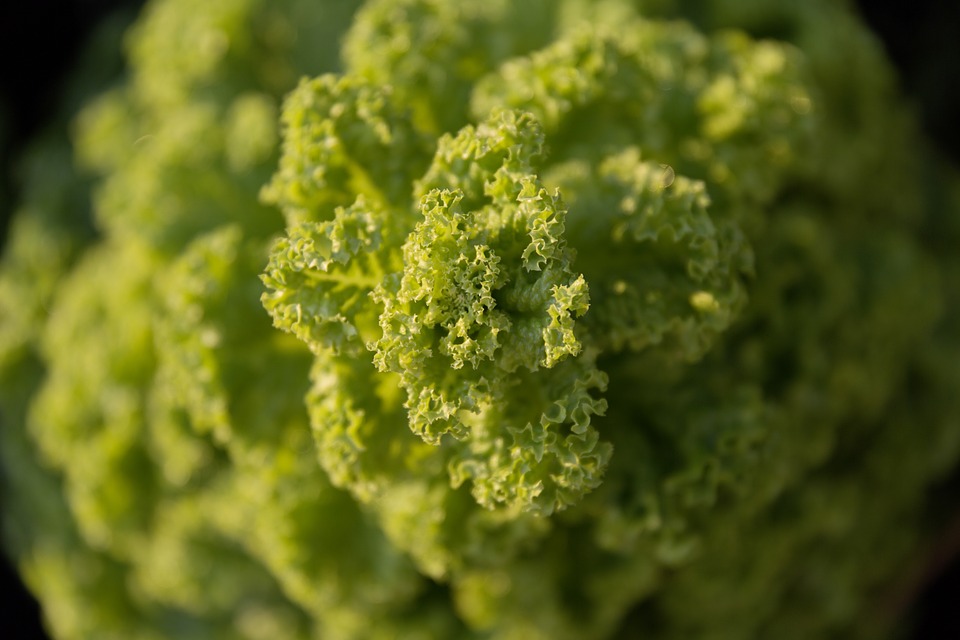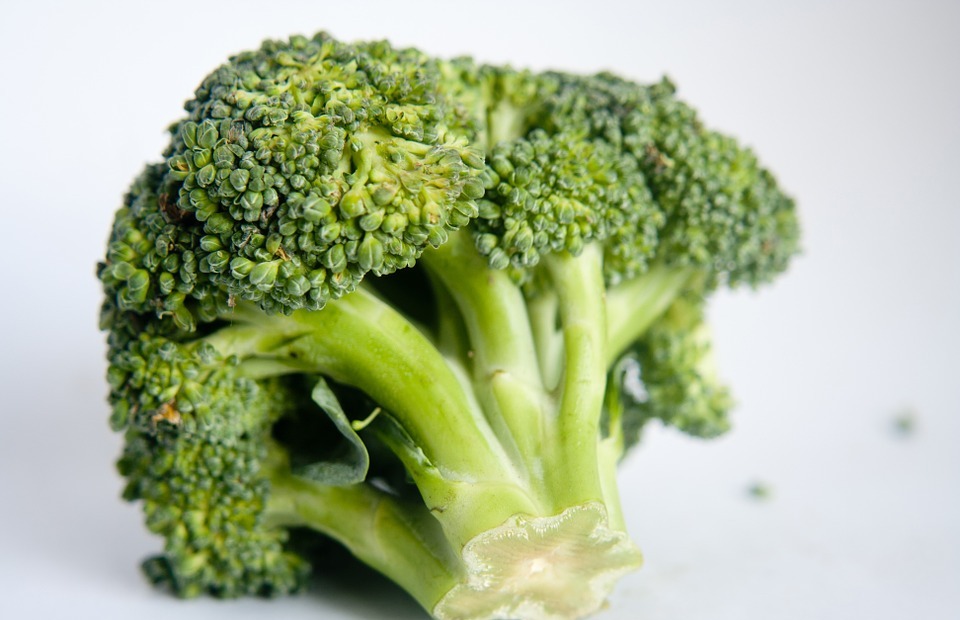This comprehensive guide will explore the intricacies of feeding broccoli to your beloved bunny. We'll delve into the nutritional benefits, safe feeding practices, potential risks, and alternative vegetable options. By understanding the nuances of this leafy green, you can ensure your rabbit receives a balanced diet that promotes optimal health and well-being.
Part 1: The Nutritional Value of Broccoli for Rabbits

1.1. A Rich Source of Essential Vitamins and Minerals
Broccoli is a treasure trove of vitamins and minerals crucial for rabbit health. It's a notable source of:
- Vitamin C: A potent antioxidant that supports immune function, wound healing, and collagen production.
- Vitamin K: Vital for blood clotting and bone health, contributing to strong bones and healthy teeth.
- Vitamin A: Essential for vision, skin health, growth, and reproduction, maintaining healthy eyes and a glossy coat.
- Potassium: A key electrolyte that regulates blood pressure, muscle function, and nerve impulses, contributing to smooth muscle contractions.
- Calcium: Essential for strong bones, teeth, and muscle function, crucial for growing bunnies and maintaining bone density in older rabbits.
- Fibre: Essential for digestive health, promoting gut motility, preventing constipation, and fostering a healthy microbiome.
1.2. The Power of Fibre in Broccoli
Broccoli boasts a substantial fibre content, making it beneficial for rabbit digestion. Fibre aids in:
- Stimulating gut motility: Preventing constipation and promoting regular bowel movements.
- Supporting beneficial gut bacteria: Creating a healthy balance of bacteria in the digestive tract, crucial for nutrient absorption and overall health.
- Providing a feeling of fullness: Contributing to satiety and helping regulate blood sugar levels.
1.3. Broccoli's Antioxidant Powerhouse
Broccoli is packed with antioxidants that fight free radical damage, protecting cells and reducing inflammation. Key antioxidants include:
- Sulforaphane: Possessing anti-cancer properties and potential anti-inflammatory benefits, promoting overall health.
- Quercetin: A flavonoid with anti-inflammatory and anti-allergic properties, helping to combat inflammation and reduce allergic reactions.
- Vitamin C: A powerful antioxidant that boosts the immune system, protecting against infections and promoting healing.
Part 2: Introducing Broccoli to Your Rabbit Safely

2.1. Finding the Right Portion Size and Frequency
While broccoli is nutritious, it's crucial to provide it in moderation. For a medium-sized rabbit, a small piece, roughly the size of a thumbnail, a few times a week is a safe and effective approach.
2.2. Preparation and Handling: Ensuring Freshness and Safety
Always wash broccoli thoroughly before feeding it to your rabbit to remove any dirt, pesticides, or residues. You can also steam or blanch it briefly to make it softer and easier to digest, particularly for younger rabbits or those with sensitive digestive systems. Avoid feeding raw broccoli florets as they can be tough to chew and digest.
2.3. Monitoring for Digestive Distress
It's vital to observe your rabbit's behavior after introducing broccoli. Keep an eye out for any signs of digestive distress, which may include:
- Diarrhea: Loose, watery stool, indicating potential digestive upset.
- Bloating: A swollen abdomen, suggesting gas buildup or digestive discomfort.
- Loss of appetite: Refusal to eat, indicating potential discomfort or illness.
- Lethargy: Decreased activity levels, suggesting a lack of energy or discomfort.
If you notice any of these symptoms, immediately stop feeding broccoli and consult with a veterinarian to rule out any underlying health issues.
Part 3: Potential Risks of Feeding Broccoli to Rabbits
3.1. Gas Production: The Cruciferous Challenge
Broccoli belongs to the cruciferous vegetable family, known for causing gas production in rabbits. This is due to the presence of raffinose and stachyose, complex sugars that rabbits have difficulty digesting.
3.2. Bloating and Digestive Issues: A Potential Consequence of Gas
Excessive gas production can lead to bloating and digestive issues, particularly in rabbits with sensitive digestive systems. Introducing broccoli gradually and monitoring for any signs of discomfort is essential.
3.3. The Calcium Factor: Balancing Intake and Risk
While broccoli is a good source of calcium, excessive intake can lead to calcium buildup in the urinary tract, increasing the risk of bladder stones. This is particularly important for rabbits prone to urinary problems, as a high calcium diet can exacerbate this condition.
Part 4: Alternatives to Broccoli: Expanding Your Rabbit's Diet
4.1. A Variety of Leafy Greens: Nutritious and Delicious
There are many other leafy greens that are both safe and nutritious for rabbits, providing a wider range of vitamins and minerals:
- Kale: Packed with vitamins A, C, and K, as well as calcium and fibre.
- Spinach: A good source of vitamins A, C, and K, iron, and folate.
- Collard greens: High in vitamins A, C, and K, as well as fibre and calcium.
- Dandelion greens: A rich source of vitamins A, C, and K, and minerals like potassium and iron.
- Parsley: A good source of vitamins A, C, and K, and a tasty addition to their diet.
4.2. Other Vegetables: Expanding the Palate
Rabbits enjoy a variety of other vegetables that contribute to a balanced diet:
- Bell peppers: A good source of vitamins A and C, as well as antioxidants.
- Carrots (in moderation): Rich in vitamin A, fibre, and antioxidants, but should be offered in small amounts due to their high sugar content.
- Celery: A good source of vitamin K and fibre, adding a crunchy texture to their diet.
- Cucumbers: Low in calories and a good source of vitamins K and C, providing hydration and refreshing flavour.
- Sweet potatoes (cooked): A good source of vitamin A and fibre, but should be cooked and offered in moderation.
4.3. Herbs: A Touch of Flavor and Benefits
Some herbs can add flavour and provide nutritional benefits:
- Basil: Known for its antioxidant properties and can be given in small amounts.
- Cilantro: A good source of vitamins A, C, and K, offering a distinct flavour.
- Dill: Known for its digestive benefits and can be given in small amounts.
- Parsley: A good source of vitamins A, C, and K, providing a fresh and fragrant addition.
Part 5: Common Questions about Feeding Broccoli to Rabbits
5.1. Can Baby Rabbits Eat Broccoli?
It's generally best to avoid feeding broccoli to baby rabbits under 3 months old. Their digestive systems are still developing and may be more sensitive to gas production and digestive upset.
5.2. How Often Can I Feed Broccoli to My Rabbit?
A small piece of broccoli, about the size of a thumbnail, a few times a week is a suitable amount for a medium-sized rabbit. However, individual rabbits may have different tolerances and require adjustments based on their specific needs.
5.3. What if My Rabbit Eats a Lot of Broccoli?
If your rabbit accidentally eats a large amount of broccoli, monitor them closely for signs of digestive distress. If they show any signs of discomfort, contact a veterinarian immediately.
5.4. Is Broccoli Stem Safe for Rabbits?
Broccoli stems are generally safe for rabbits but are tougher to chew and digest. It's best to offer them in small pieces and observe for any signs of digestive distress.
5.5. Can I Give Broccoli to My Rabbit Every Day?
While broccoli is nutritious, it should not be given daily. Providing a variety of fresh vegetables and herbs is important for ensuring a balanced diet and preventing imbalances in nutrient intake.
5.6. Is it Better to Give Broccoli Raw or Cooked?
Raw broccoli is generally safe for rabbits, but steaming or blanching it can make it softer and easier to digest, particularly for younger rabbits or those with sensitive digestive systems. However, avoid overcooking it as this can destroy some of its nutrients.
Part 6: Conclusion: A Balanced Approach to Broccoli
Broccoli can be a healthy addition to your rabbit's diet when given in moderation and with careful consideration of potential risks. It's crucial to introduce it gradually, observe for any signs of digestive upset, and choose other vegetables as part of a varied diet. By following these guidelines, you can help ensure your furry friend thrives with a balanced and nutritious diet.
Everyone is watching
-

Do Rabbits Lay Eggs? (The Surprising Truth)
OTHER TYPES OF PETSThis article will unravel the common misconception that rabbits lay eggs, exploring the fascinating world of r...
-

Can Rabbits Eat Grapes? A Guide to Safe Rabbit Treats
OTHER TYPES OF PETSThis comprehensive guide will explore the safety and suitability of grapes for rabbits, providing detailed inf...
-

What's a Group of Rabbits Called? (A Comprehensive Guide)
OTHER TYPES OF PETSThis article delves into the fascinating world of rabbits, exploring the various terms used to describe a grou...
-

Predators That Hunt Rabbits: A Guide to Natural Enemies
OTHER TYPES OF PETSI've always been fascinated by the circle of life, that delicate dance between predator and prey. Growing up ...
-

Are Rabbits Nocturnal Animals?
OTHER TYPES OF PETSThe question of whether rabbits are nocturnal animals is a fascinating one, with a surprisingly complex answer...
